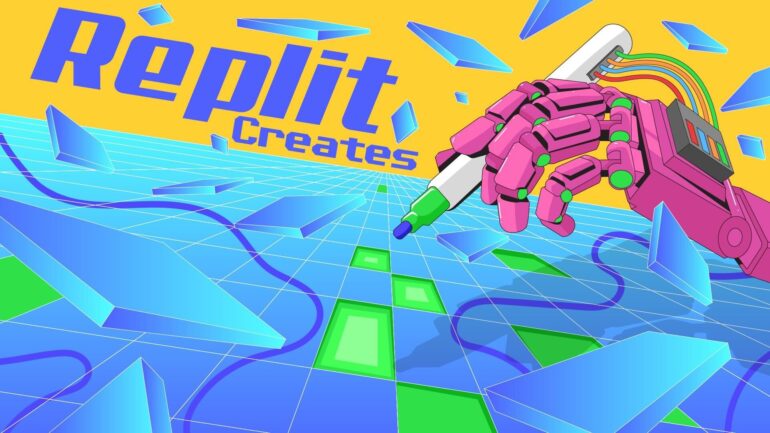TL;DR:
- Replit, a prominent developer tooling vendor with 20 million users, is making AI accessible to all developers.
- GhostWriter AI code completion tool is now available to all users, marking the initiative as “AI for all.”
- Replit introduces replit-code-v1.5-3b, an open-source generative AI large language model (LLM) for coding.
- Replit’s LLM competes with industry giants like StarCoder and Meta’s Llama CodeLlama 7B.
- CEO Amjad Masad emphasizes Replit’s mission of empowerment and global accessibility.
- The company emphasizes genuine generative AI capabilities, trained on open-source code and meticulous data quality.
- The LLM update, replit-code-v1.5-3b, supports 30 programming languages and is powered by robust hardware.
- Replit’s move signals a transformative shift in AI integration in programming tools.
Main AI News:
Replit, a leading developer tooling vendor with a staggering 20 million users on its cloud software development platform, has embarked on a visionary journey to democratize AI for all developers. Over the past year, the company has been quietly bolstering its generative AI capabilities, introducing the GhostWriter AI code completion tool and forging a strategic alliance with Google. Until recently, GhostWriter access was restricted to a select group of Replit users, but that paradigm has shifted.
Starting October 9th, Replit is seamlessly integrating GhostWriter into its core platform, extending the reach of this generative AI code completion tool to its entire user base, marking this endeavor as “AI for all.” Alongside this groundbreaking integration, Replit is unveiling a new iteration of its bespoke open-source generative AI large language model (LLM) for coding, known as replit-code-v1.5-3b.
Replit’s open-source coding LLM emerges as a formidable contender against the likes of StarCoder LLM, a joint venture between ServiceNow and Hugging Face, and Meta’s Llama CodeLlama 7B. Amjad Masad, CEO of Replit, affirmed the company’s mission to champion accessibility during a live-streamed session at the AI Engineer Summit, stating, “Our mission is to empower the next billion developers, and so we really didn’t want to create this world where some people have access to GhostWriter and other people don’t have access to it.“
The GhostWriter name will be gracefully retired with this new integration, and Replit will establish AI as a foundational feature available to all of its users. According to Masad, Replit’s global user base, spanning various devices from laptops to mobile phones, will now have the opportunity to become AI-enhanced developers.
“We think this is going to be the biggest deployment of AI-enhanced coding in the world,” Masad predicted. “We’re going to be burning as much GPU as we’re burning CPU, so pray for us.”
Replit Reinvents Open-Source Code LLM
What sets Replit apart is the authenticity of its generative AI capabilities. Unlike some competitors who merely layer AI technology on top of existing models, Replit’s code completion feature is powered by its bespoke large language model. Michele Catasta, VP of AI at Replit, expounded on this uniqueness during a live-streamed session at the AI Engineer Summit, saying, “We trained on open-source code, both published on GitHub and also developed by the Replit user base.“
In May, Replit introduced replit-code-v1-3b LLM, and now it proudly unveils replit-code-v1.5-3b, an update that vastly augments the LLM’s capabilities. Catasta revealed that this model update was trained on a staggering 1 trillion tokens of code, providing support for a diverse array of 30 programming languages.
The “secret ingredient” in this latest LLM version, according to Catasta, lies in the meticulous attention Replit paid to data quality. This emphasis underscores the pivotal role data quality plays in the success of AI models.
Equally vital to this achievement is the formidable hardware that powered the LLM’s training. Catasta declared, “We trained on 128 [Nvidia] H100-80G [GPUs], which are as rare as gold at this point.” Notably, this marks the first official announcement of an H100-trained model being released as open source, a milestone that has Replit brimming with excitement.
Conclusion:
Replit’s strategic initiatives to democratize AI for developers and enhance its open-source code LLM underscore a paradigm shift in the programming tools market. By making AI widely accessible and investing in genuine generative AI capabilities, Replit positions itself as a key player in the evolving landscape of AI-powered coding tools, challenging established industry giants. This move is poised to reshape how developers interact with AI, emphasizing the need for AI to be seamlessly integrated into the programming experience.

